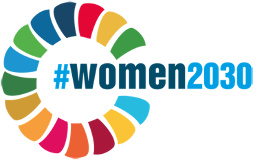About the SDGs
On 25 September 2015 the UN General Assembly adopted the 2030 Agenda for Sustainable Development. This is a moment that civil society internationally has been working towards for many years and is the result of strong global and European consultations and advocacy campaigns.
An integral part of the 2030 Agenda is the Sustainable Development Goals (SDGs). They are a set of 17 goals and 169 targets aimed to reach the objectives of ending poverty, protecting the planet and ensuring prosperity for all. They were designed as the continuity the Millennium Development Goals (MDGs) 2000-2015, and are more exhaustive and adapted to the new challenges the world has to face. In contrast to their predecessors (MDGs), the SDGs aim to reach everyone: governments, private sector, civil society organisations, individuals, etc. Whereas they are not legally binding, they are a globally-agreed vision for a better, fairer world.
While the Agenda 2030 has recently been adopted, the real work starts now. As global partners of the #women2030 project, our challenge is to make Agenda 2030 (and its SDGs) a reality; making sure we reach all of the Sustainable Development Goals and targets globally. Our mission is to gather the civil society to ensure that they are integrated in the good implementation of these goals, as well as ensuring a fair representation of women within the process. We are doing so by addressing all of the SDGs holistically, and particularly the followings:
- Gender equality (SDG 5): governments have to put laws and regulations in place in order to ensure women’s safety and equal representation in all governmental processes.
- Universal access to water and sanitation (SDG6): access to water is critical to women’s empowerment. A better access to water and sanitation means an improved health, as well as more time spent for girls’ and women’s education.
- Sustainable energy (SDG7): access to clean, adapted, decentralised and renewable energy is essential for people’s health and autonomy, and for reducing dependency on fossil and / or high carbon emission energies.
- Decent work (SDG8): better recognition of women’s work – paid and unpaid – is necessary to ensure a fair income, decent working hours and conditions as well as health coverage, and avoid illegal, forced work and exploitation.
- Sustainable production and consumption (SDG12): development of production and consumption that takes into account the limitation of natural resources and empower local populations, including women, to keep the ownership of their lands and means of production.
- Climate action (SDG13): women, indigenous peoples and local communities, and other groups have the right to be represented in climate summits as climate change affects them in different ways and they are the holders of knowledge and experiences that can help finding adapted solutions to climate change.
- Conserving forests and biodiversity (SDG15): limiting the industrialisation of agriculture and forestry in order to protect forests, biodiversity and preserve local communities’ ways of subsistence.
For more information about the Sustainable Development Goals, you can visit the UN website dedicated to the SDGs.

